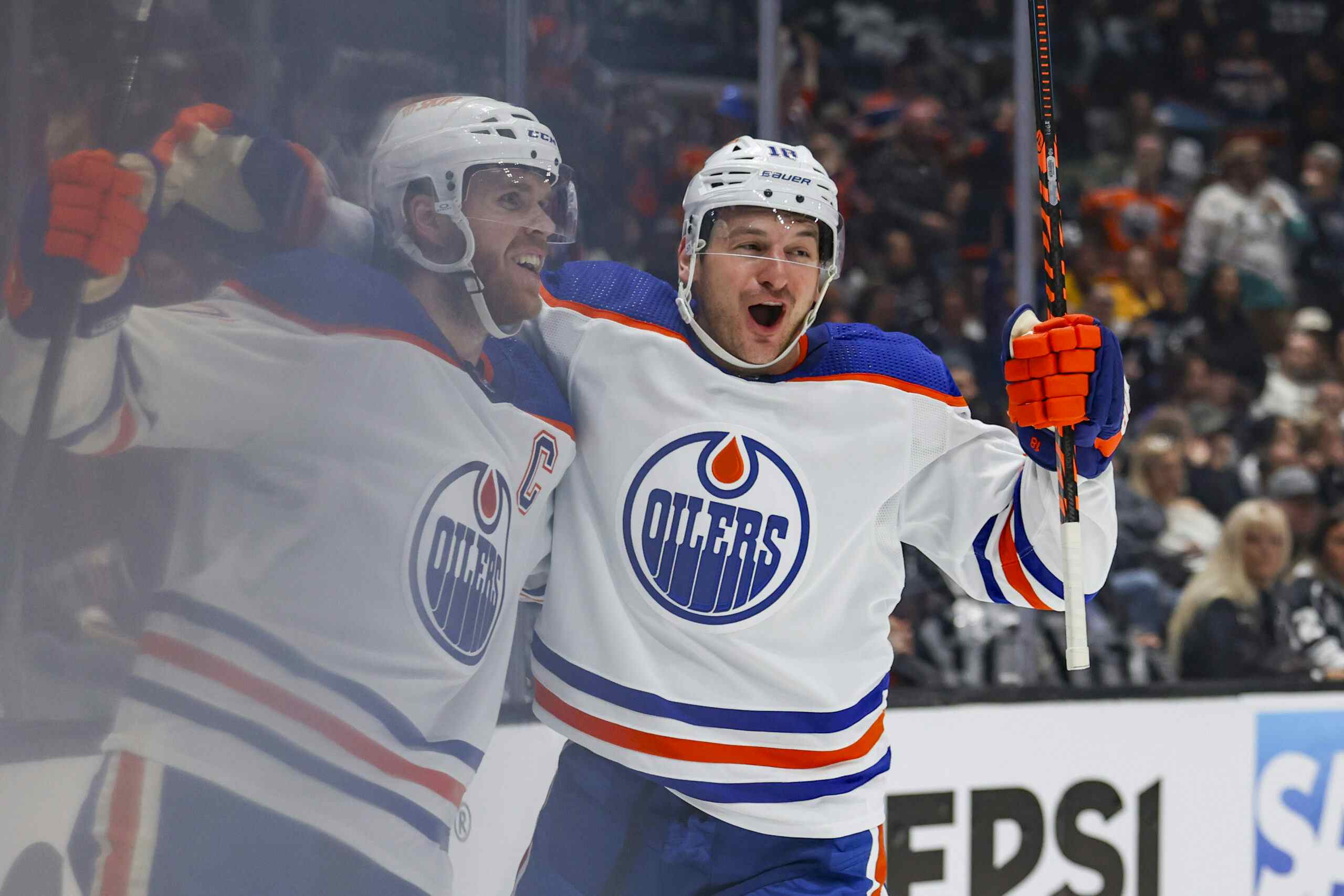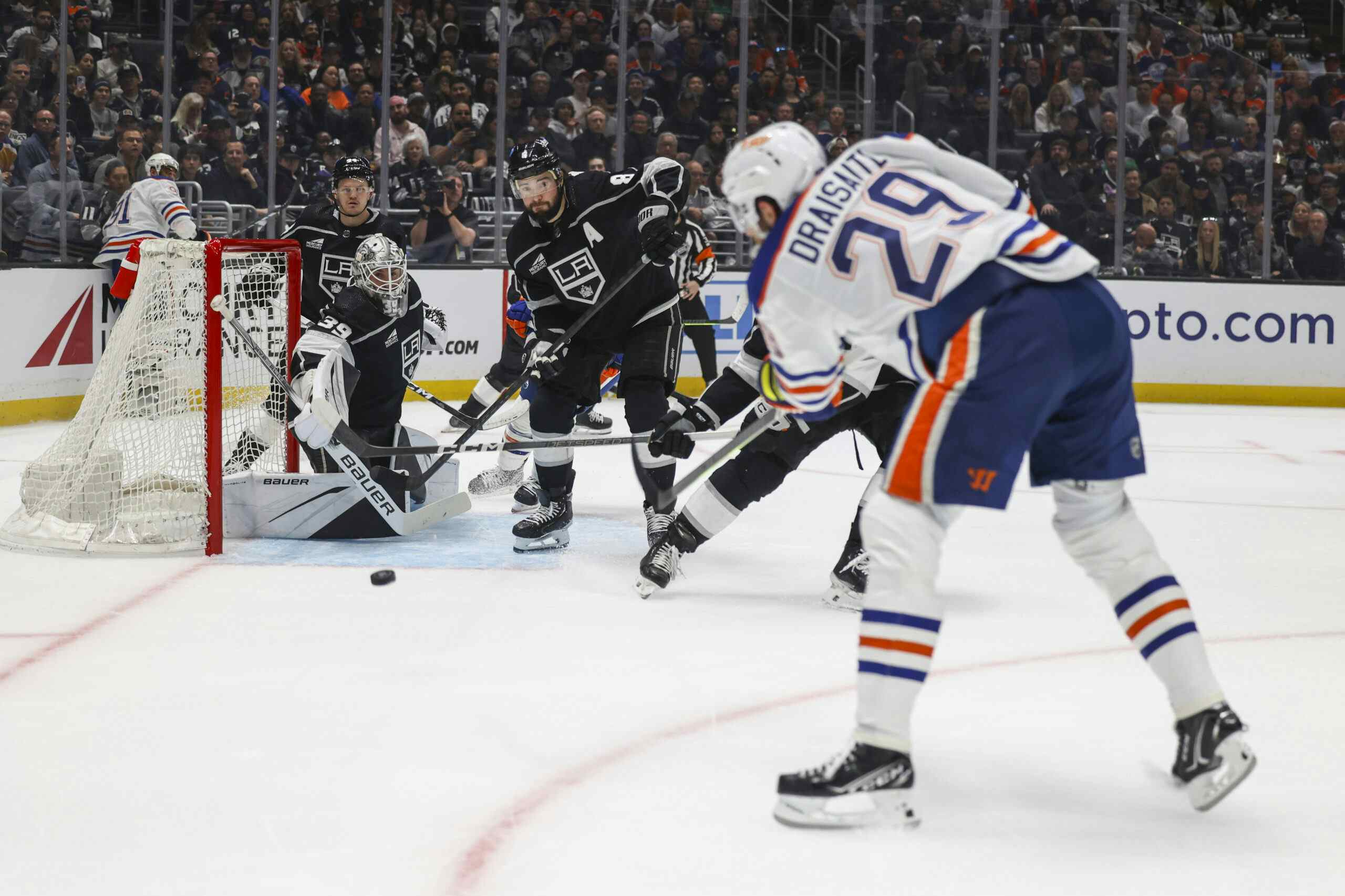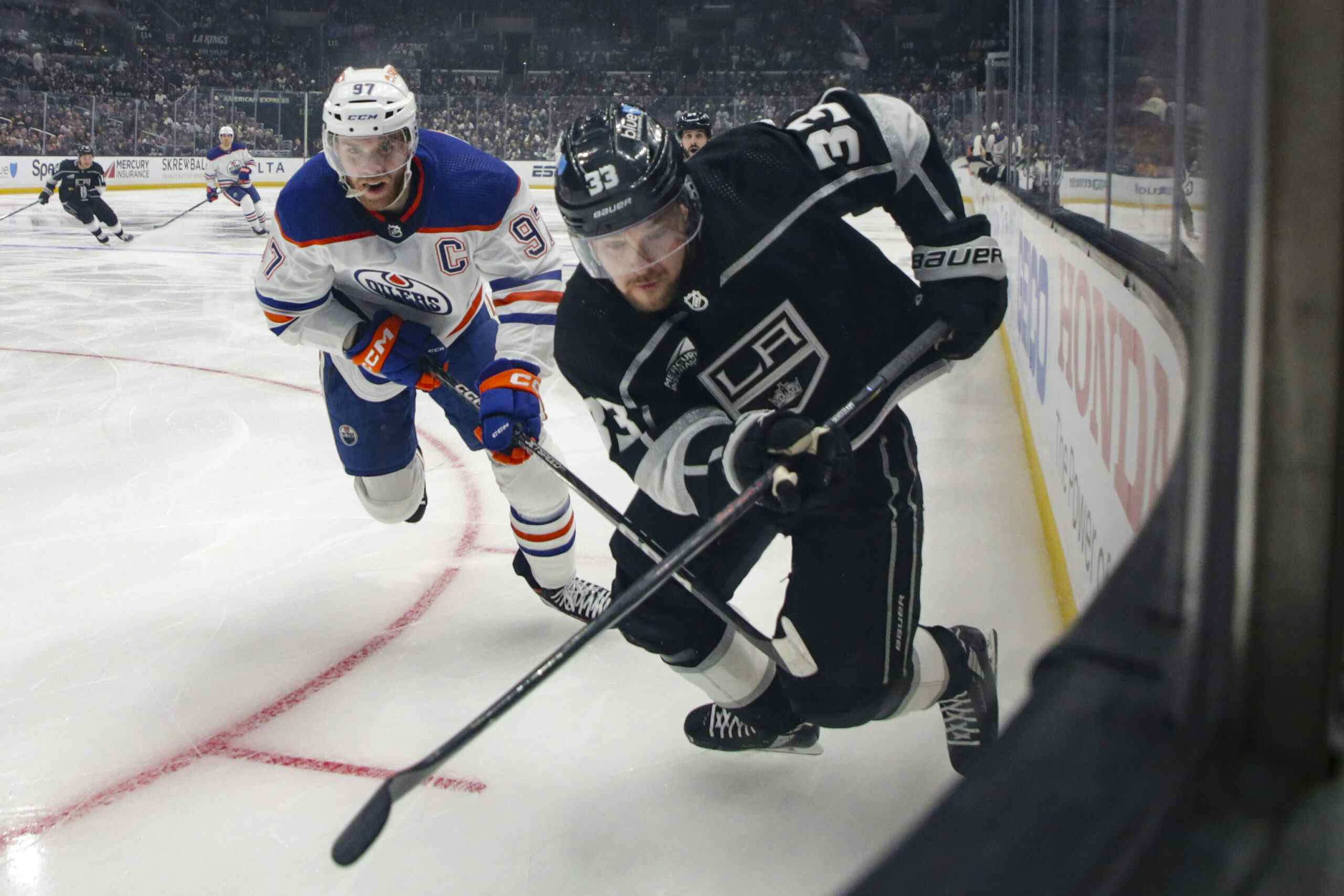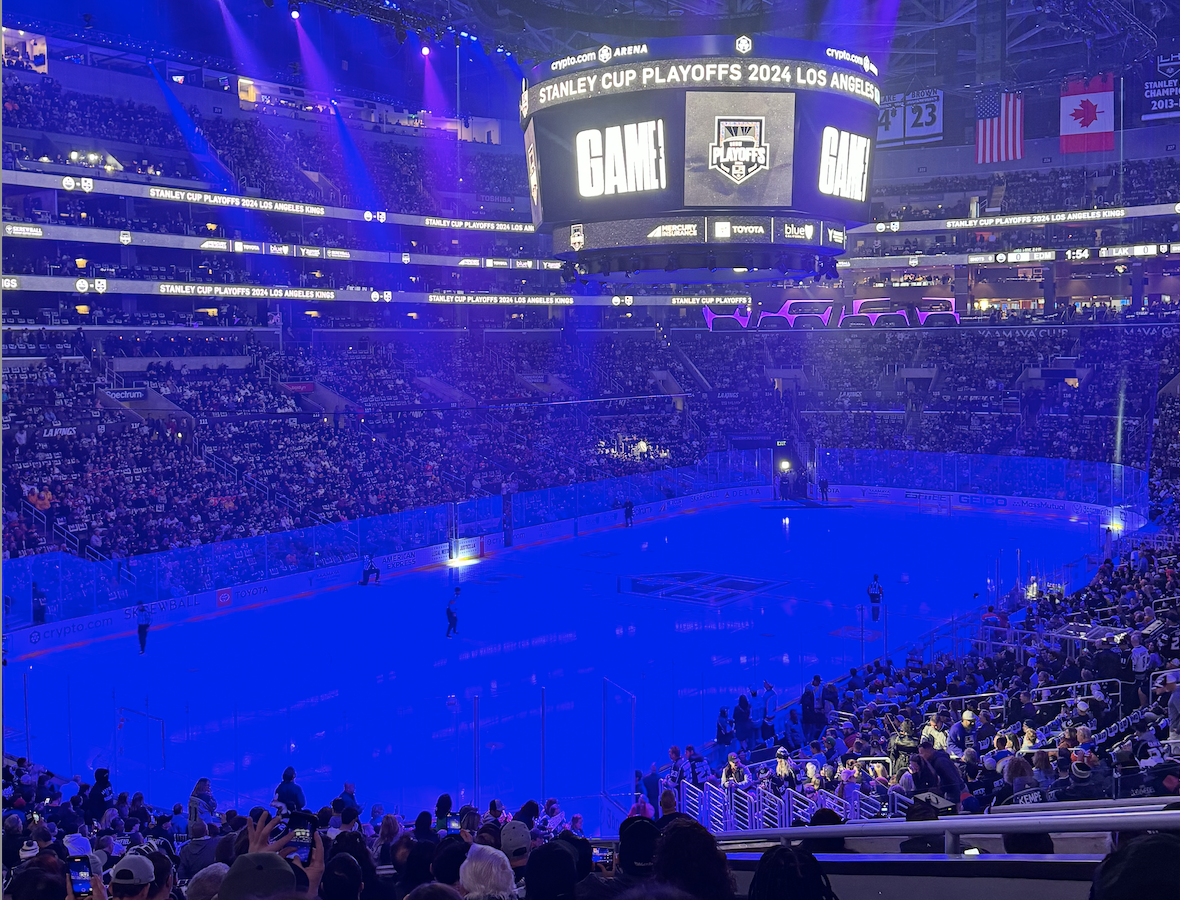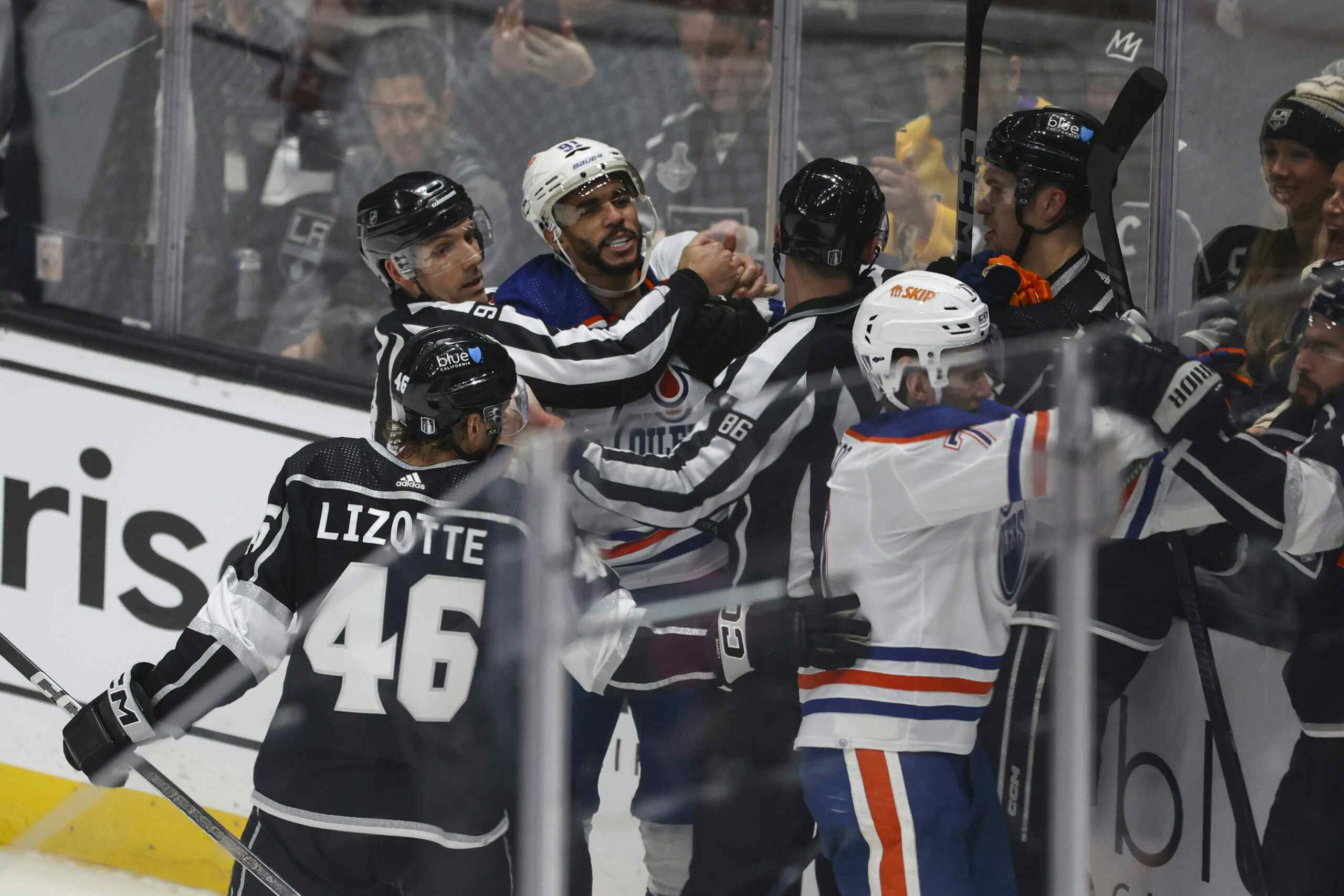Woodcroft discusses Benson, Bouchard, McLeod and More
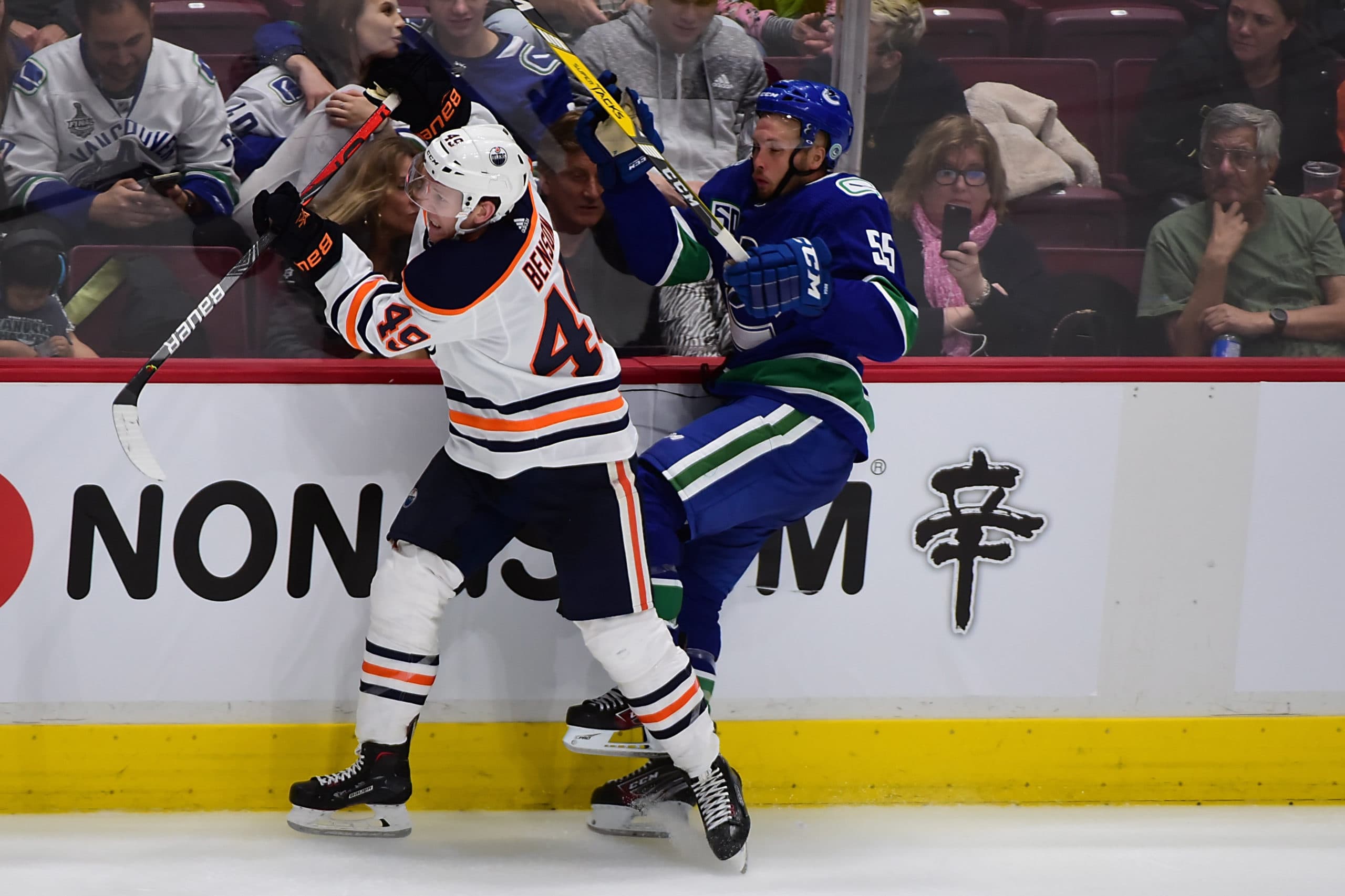
By Jason Gregor
4 years agoEdmonton Oilers GM Ken Holland vowed to be patient with young prospects and not bring them up to the NHL until they were ready to contribute. Since being recalled from the AHL, @Kailer Yamamoto has made an impact. He is much more NHL-ready today than he was when the previous regime tried to rush him to the NHL.
If the Oilers want to remain a contending team, and even become an elite team, they will need to develop more of their prospects. With @Jujhar Khaira struggling many are wondering if @Tyler Benson will be recalled. Benson had a slow start to the season, but he’s been really good for the past six weeks.
Bakersfield Condors head coach Jay Woodcroft joined Jason Strudwick and me on our TSN 1260 radio show recently to discuss Benson and the progress of some other Oilers prospects.
Jason Gregor: Tyler Benson is a hot topic for Oilers fans. Early on this year he was trying to run guys and be a physical presence. Not saying he can’t do that, but I don’t think that is his forte. When you look at his start to the season compared to the past 15 games, where he is back to the dominant player he was last year, what was the big difference you’ve seen from a coaching perspective?
Jay Woodcroft: Well the big thing for me is that he is at his best when he is playing his game, like you said, not getting away from it, trying to be something he’s not. So when I look at him, I think he’s a very intelligent player, a player who has excellent hockey sense, who is fast between the ears and somebody who can make a play. I mean he’s done it at every level he’s ever played at — he makes plays, he makes things happen with the pucks and I think that over the last, basically since the beginning of December, his game has rounded into the form that we saw last year in large part because of the way that he’s moving his feet, in large part because he is getting back to who he is as a hockey player. When he’s going, he makes us a lot better of a team just because of the amount of plays that he makes.
Jason Strudwick: Jay you mention the idea of making plays. How unique is it, at that level, to have a player who makes plays from the wing rather than at centre?
Woodcroft: Yeah I think it’s interesting. I think when you talk about him, a lot of his stuff doesn’t necessarily come off of the rush; a lot comes off of the cycle as well. I think he’s at his best when their line is maintaining puck possession and grinding the other team down, and there is a little bit of motion on the set and he has the ability to find people. He can do that on his forehand or on his backhand. I think you typically see that out of centres more than wingers, but there are some pretty talented wingers in the NHL and also the American League.
He’s predominantly played the last six weeks with [Cooper] Marody and with [Josh] Currie. I think what makes their line work is that Currie has the ability to shoot the puck and Benson and Marody have the unique ability to find him. Benson and Marody see the game similarly. They read off of each other well, and they find a way to get the puck to the shooter and that’s what makes them an effective line.
BOUCHARD…
His offensive game is looking good. But what about his defensive play?
Gregor: @Evan Bouchard. You got him for the playoffs last year which was a really good experience for him. Now you’ve had him for 30+ games. From the games I’ve watched he seems to be, not more defensive, but is he more aware of his defensive responsibilities. Is that the biggest improvement in his play?
Woodcroft: Yup, I think so. I’ve said this before, I see him growing before our eyes in that part of his game. For me, and Struds would know this because he played the position, when you talk about defending, proximity to your check is very important. The ability to have some sort of spatial awareness of where your opponent is, to be able to control him through your movements and your physical relationship with that opponent is important. And I think that when junior hockey players or NCAA players come up into the pro ranks they play off of their check a lot. And what you learn fast in the NHL and what you learn fast in the American Hockey League is that if you give good players space, they’re going to use it to their advantage.
So that’s something that we remind him of and that takes the shape in many different forms. It can be off of the rush, when a puck gets hit out into the wide lane and his job is to pick up the middle driver and how close he is to his check in that regard. It could be his net play with controlling where the opponent goes in terms of meeting his check early rather than giving his guy too much time and space to be able to find different options.
I think that the one thing about Bouch is that he is very coachable kid, (he has) a good relationship with Dave Manson (assistant coach who runs the defence). He’s done a really good job with all of these prospects over the last year and a half and I think Bouch is working earnestly at his craft. He’s in a good spot. He commands huge minutes for us and he earns every single one of them.
Strudwick: You talk about this idea of playing closer to your check. It’s so true because in junior not everyone is going to bury the chance that they get. Is it possible to get a player, and not just Bouchard, but any player to change those habits through video or does it have to be drilled in from repetition on ice and through practice?
Woodcroft: Well I think a couple of things and you might know this Struds just through your personal development as a defenceman. I think you can talk about it. We do hammer it home through video, we certainly work very hard in practice, but you have to go through the experience to actually see the capability of your opponents, and what they’re going to do to beat your check or to beat your defence in a certain situation.
So for me that’s where you’re seeing that growth from Bouchard is he’s much farther along in that regard today as we sit in the beginning of January 2020 than he was last year when he came to us in the playoff run. And that comes through experience and you can talk about it all you want, you can show as much video as you want, you can work on it in practice, but you’ve got to feel it too. You’ve got to feel it in game situations, and that’s our job is to put them in those situations to try to develop them and ingrain certain habits.
You guys hit the nail on the head with Bouch’s game really come up.
Strudwick: When you look at some of the other young players, including Ryan McLeod. I’m assuming some of the same details in his game defensively need to be adjusted, just like all players. What about the offensive side for him. Is it developing?
Woodcroft: Well it’s interesting because each player has different things that they need to work on. I feel very good when Ryan McLeod is on the ice in terms of his defensive responsibility, his defensive conscience. He plays on our penalty kill, he plays a big part on that. I don’t worry if I send him out on our D zone faceoff. I feel quite comfortable in that regard.
What we’re trying to work with Ryan is to develop habits required to be a productive professional hockey player offensively. And a lot of the times that comes from playing on the inside. And what is playing on the inside, because I know that’s such an abstract thing for a coach to say to a player. I think that you have to clearly define what playing on the inside means.
You have to hold people accountable to what you are looking for offensively, and just like we talked about with Bouch, you show video, you work on things in practice, you make sure that you’re trying to develop techniques and that’s what we’re looking to do for Ryan.
We’re trying to get that out of him, the willingness to stay in plays, the willingness to get your nose over the puck in the blue paint, the willingness to get to the blue paint and fight through your check in order to do so. Those are all things that I think that young players, those are skills that young players need especially if they want to take the step up to the NHL.
Gregor: Jay, last year you bring in Marody and Benson, two rookie players. They get some opportunity and they produced and now they’re in their second year. This year you’ve added McLeod and Kirill Maksimov who is used to being a scorer. But the challenge now is that you don’t necessarily have the same open opportunities for those two because Benson and Marody are still on your team. So Maksimov is learning at a different level with not a similar amount of minutes. Is that a challenge as a coach?
Woodcroft: Bakersfield is merit based. We’re a merit kind of team. When we’re talking about players it’s not about draft position, it’s not about status in the organization, it’s not about rank, it’s about production and that’s what we want to see. We want to see highly productive players. And the challenge for young players in the ability to carve out their niche within the team concept while developing their personal skills.
And so for me, I’ve seen real growth in Krill Maksimov’s game over I would say the last six weeks. He was fighting for ice time, he was fighting for position within our lineup an over the last little while, the line of [Colby] Cave, Maksimov and [Luke] Esposito has been one of our best and one of our most consistent. And while his personal offensive numbers aren’t where he would want them to be, he’s learning how to find his way in this man’s league, but he’s commanding respect of his teammates, he’s commanding his share of the ice, and so doing so garners the respect of opponents. He’s playing hard and heavy game, he’s a big reason why our team is 4-1-1 since the Christmas break.
Gregor: I might not have worded that correctly. It wasn’t a knock on him, but more that with Benson and Marody still on your team the PP opportunities that they received as rookies won’t be there as much for Maksimov. It’s different every year for guys even though it’s about merit based, sometimes a guy can be good, but having other young players makes it more challenging to get them all in offensive situations?
Woodcroft: Yup, for sure and that comes back to that merit based too. If we’re seeing good things out of certain people out of certain situations they get opportunity in those privileged ice times, in the six on five, on the five vs six, the power play, the penalty kills, the four on four, that type of thing. Our job as a coaching staff is to try to figure that out. And for the most part, our penalty kill has had a really good start to the season, it got dinged up last night for two. But it’s been a real strength and he’s been on that. He plays four on four, he’s in the shootouts and he’s played piecemeal on the power play and the power play is coming, especially since Christmas and we’re looking forward as he finds that kind of offense, that next offensive gear for him more opportunity will come for him. But like I said, I’m very pleased as a coach with how far he’s come in the last six weeks.
Gregor: @Joel Persson when he was up here admitted everything happens quicker on a smaller ice surface. The AHL is not an easy league. It has the same smaller ice surface, so how is he adapting down there? Is he adjusting how you’d like now that he is playing more minutes and more games?
Woodcroft: I think with Joel, number one, he came down with a really good attitude. It is not easy coming down from the NHL where he’d been for basically the first two months of the season.
He came down with a great attitude. He was excited about the opportunity to play more minutes. We play him on the penalty kill which he hadn’t had a ton of experience with in his career. He really enjoys that.
He makes a good first pass. I think at the offensive blueline he has poise and a low panic point and an ability, that not a lot of guys at this level have, to find open men. So his head is up at the offensive blue line he doesn’t just pound it into people’s shin pads or revert to shooting it back to the net. He tries to make a play with it and he’s had a good attitude. He feels good about his game and I think that all of the experience he’s gaining on the small ice surface helps him.
While I would agree that the NHL is a step faster than the American Hockey League there are a lot of mistakes that happen in the American Hockey League, that things happen quickly too. So its great experience for him and he’s a real good teammate and I appreciate coaching him.
WRAP UP…

Without question, Benson is the best winger prospect in the AHL. You might see him in Edmonton in February, but he’d likely start in a bottom six role, unless there is an injury in the top-six.
I’m very curious to see what happens next season with Philip Broberg. He is only 18. He is still eligible to play at the World Juniors next year. This year he was in a shutdown role in the tournament, as many 19 year olds get larger roles. Next year he could be the one playing on the PP, playing with the top lines and in four-on-four. I don’t believe it is a slam-dunk he comes to the American League next year. And that is fine. He doesn’t have to. He needs to keep developing, and Holland has said previously he isn’t in favour of forcing players to come over.
You want him to come over when he is excited and ready. It is a major move to come to North America, and he will only be 19. Rushing players is rarely the answer. I haven’t spoken to Broberg, so I can’t say with any accuracy where his head is at, but Oscar Klefbom spent two years in Sweden after being drafted before he came to North America. Klefbom started in the AHL, playing 48 games, before being recalled late in the 2013/2014 season and played 17 NHL games.
I see a similar route for Broberg. It is far from a guarantee he plays in the AHL next year, and I sense the Oilers are more than happy with that.
Recently by Jason Gregor:
Recent articles from Jason Gregor

